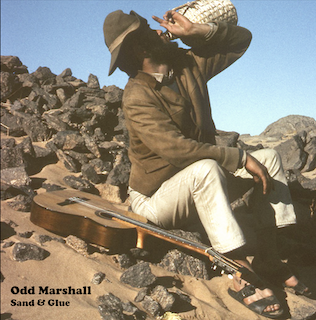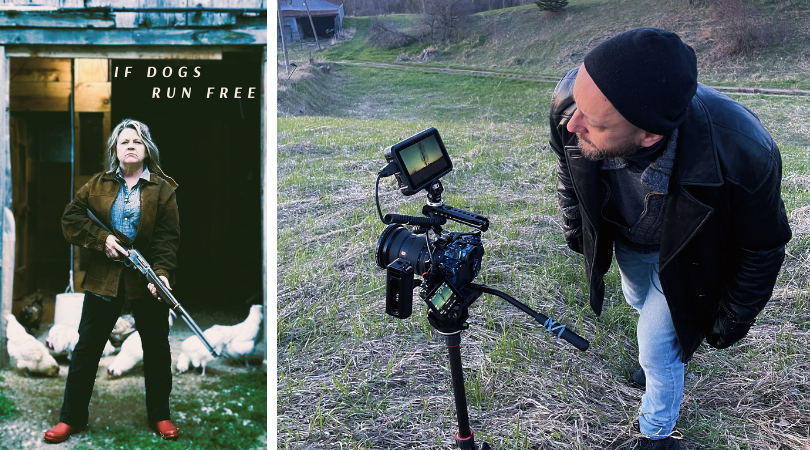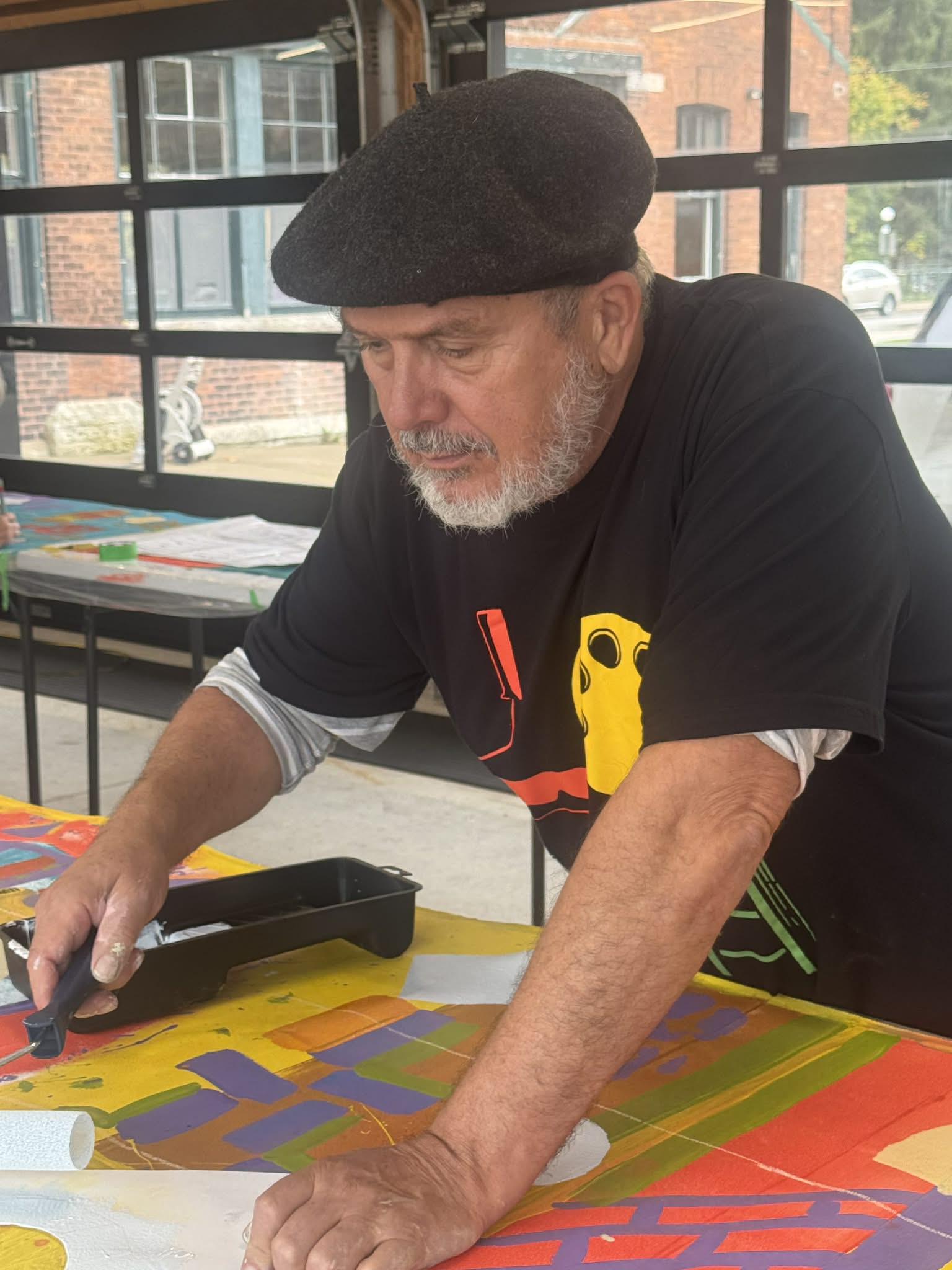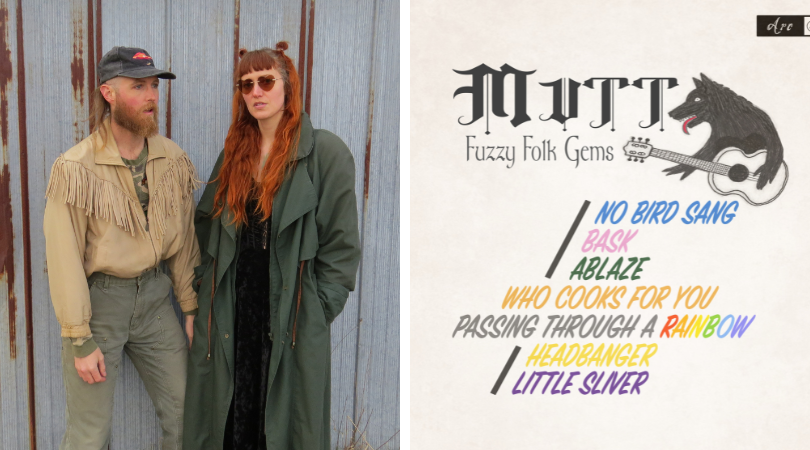In this role, I’m extremely fortunate to get access to a ton of great music from artists in this area. It’s inspiring to hear the up-and-coming sounds of artists with integrity, originality, style, and swagger – the whole nine yards – but every now and then an album comes along that is so up my alley, it’s ridiculous.
Sand and Glue is one great big cohesive unit of original musicality that folds back into itself over and over again. From what, at times, feels like a conversation with oneself, this collection from Odd Marshall, is one you’ll want to listen to once, then again, then a third time just to make sure you really absorb it.
These introspective songs make me quarrel with my own emotions and confront the bigger questions I have about life and how to get through it. Though Sand and Glue is an album that radiates positivity and feels a lot like a summer record, there’s a lot of depth in Odd Marshall’s thematic reach.
Like music often does, this album takes the listener somewhere – it takes me to a cottage. One small, but mighty, summer home on the Sauble River is where I spent my summers after college. There’s no cell service, no running water, but there is a mini fridge, a bar top on the winding banks, some speakers dangling in old fishing net, and about 250 CDs.

Sand and Glue takes me to this place, because it’s a record that could fit seamlessly into the rotation of deep cuts from bands like Mudcrutch and The Byrds, being played at there. It has this timeless kind of presence that exists in art that is created at the exact moment in time it is meant to be. You can tell he and his crew were tapped-in when they made this.
As I ride my bike along the harbour and listen, I stop to rewind so I can revisit some of the lyrics and deliveries that hit me the most. In songs like Ghost, there’s this driving acoustic guitar layer; something that he comes back to throughout the album. It’s clear in the way he writes that his guitar is a part of him, and in this particular self-reflective track it elicits a sense of reprise within a tense situation. He’s sort of going through it, finding vulnerability, and I really appreciate that in music. He cops to hard feelings with sentiments like “I hate myself and all of my mistakes,” but follows this up, almost immediately, with a hopeful “I forgive myself, I learned to love today.” It’s a reckoning with oneself. He’s building trust. It’s honest.
There’s a light, wavy air in the vocal delivery on this record, to the point where I’m often mid-head-bob as I catch another cheeky line wrapped in an energetic melody. His vocal delivery on this album is sincere.
In Midsummer, he paints a picture of a blissful, sunny day. When he sings “love me like you’re gonna miss me,” there’s a feeling of throwing caution to the wind, the kind that makes you late for work because you’re busy rolling in the grass with someone you love. Call in some carefully timed “oohh ahh’s” and this piece really makes you want to soak in a core memory.
Sonically, this record is laden with the textures of the 60s and 70s, the free-loving rock movement and what sounds like a band you’d listen to in the evening haze of a warmly-lit vinyl café. Having built this record with producer Don Kerr (Bahamas, Ron Sexsmith, Dan Mangan), and with performances by members of Zeusand Mike Boguski (Blue Rodeo), it should come as no surprise that the album moves with precision.
The production team understands each lyric and finds ways to eloquently amplify his messages through the kind of translation that only sound can achieve. In this effort, I hear influences like Loudon Wainwright and newer groups like Dr. Dog, but overall Odd Marshall is clearly cultivating his own vibe.

Between hollow, bouncing bass tones, tight group vocals, sparkling guitars, the thoughtful use of understated strings, some controlled misfiring of wind instruments and a plethora of drum sounds serving each track uniquely; there’s so much meat in this record that you can dig into. It might take you a few listens to really appreciate the range of everything that’s happening, but beneath the durability of the record’s cohesion, there is so much going on.
Through moments of quiet isolation, to those of the organized chaos used to express certain quantities of emotion; we never lose sight of the artist and his vision. He’s the conductor–along with his acoustic guitar, notebook and earnest voice–leading the band and demanding more coal when it’s necessary.
To me, the record reads like someone in search of a better place. It’s evident that the subject of this story has had his share of woes but has made the effort to work through them and is likely still currently doing so. Complaining about the pain and suffering in this world is an act easier than breathing, but the way he tackles real life is different. With maturity, he delves into the tricky parts, but always seems to reach this full-circle moment of realization, healing and growth.
Maybe this was a conscious creative decision for the record; to not leave listeners in a place of abandon, but to me it sounds more like an artist truly healing through his work. And, if we pay close enough attention, we just might learn something.
Odd Marshall’s music is available on all streaming platforms. Visit @oddmarshallmusic on Instagram or www.oddmarshall.com for shows and release dates.
Written by Marshall Veroni











